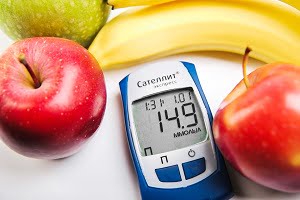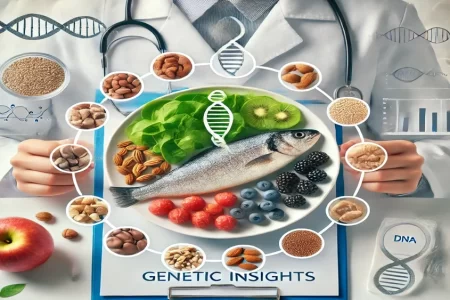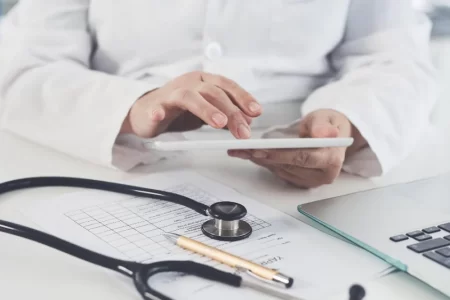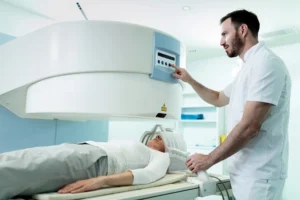Reversal of Diabetic Nephropathy
- Updated on: Jul 12, 2024
- 5 min Read
- Published on Dec 12, 2019

One of the most common causes for patients entering into chronic dialysis and end-stage renal diseases is diabetic nephropathy. Almost 25–40% of diabetic patients suffer from diabetic nephropathy. There are many risk factors for diabetic nephropathy, some of them may include:
- Hyperglycemia
- Hypertension
- Glomerular hyperfiltration
- Genetic predisposition
- Renal renin-angiotensin system
- Proteinuria
- Advanced glycation end-products
- Reduced nephron number
- Lipid disorders
Although prevention of diabetic nephropathy is critical, some measures like tight control of diabetes, reduction of proteinuria, blood pressure treatment to systolic pressure of < 130 mmHg, and treatment with drugs that inhibit the renin-angiotensin system can be considered for the prevention of or delay in the progression of diabetic kidney injury.
It is found that lowering blood pressure in patients with diabetic nephropathy and type 1 diabetes can help in reducing the rate of loss in kidney function. Lowering systemic blood pressure has been repeatedly shown to change the course of diabetic kidney disease.
Is it Possible to Reverse Diabetic Nephropathy?
Diabetes-associated kidney diseases are not uncommon for diabetic people. It is found that early diagnosis of diabetic nephropathy can help in stopping diabetic kidney disease and the associated damage. However, if the disease persists for a long time, it is not possible to reverse it.
Diabetic kidney disease or diabetic nephropathy happens when the blood vessels and other cells present in the kidneys get damaged due to diabetes. This makes it hard for the kidneys to perform their normal function. In the early stages, diabetic kidney disease is often asymptomatic, which makes it difficult to diagnose. Therefore, it is important for diabetic people to have regular tests for assessing their kidney function.
In the later stages, kidney disease gets worse and signs and symptoms begin to appear. Over time, diabetic kidney disease progresses towards end-stage kidney disease (ESKD).
Patients with early-stage diabetic kidney disease can protect their kidneys by taking several steps like maintaining their blood sugar levels as much as possible. This not only protects their kidneys but also reduces the risk for other diabetes-related complications like blindness due to diabetic retinopathy, heart attack, and damage to the blood vessels and nerves due to diabetic neuropathy.
Maintaining blood pressure is extremely important for keeping your kidneys healthy. High blood pressure can damage your kidneys by speeding up the process of diabetic kidney disease. Normal blood pressure can be maintained by taking simple precautionary measures such as eating a low salt diet, quitting smoking, and limiting alcohol. In addition to these lifestyle modifications, blood pressure controlling medications like angiotensin-converting enzyme (ACE) inhibitors and angiotensin receptor blockers, or ARBs may be useful for maintaining a normal blood pressure.
Ketogenic Diet may Reverse Diabetic Nephropathy in Diabetics
According to researchers from the “Mount Sinai School of Medicine”, a specialized diet known as the ketogenic diet may have the potential to reverse diabetic nephropathy. Ketogenic diet is a kind of diet that is high in fats and low carbohydrates.
In a press release, Charles Mobbs, Ph.D., Professor of Neuroscience and Geriatrics and Palliative Care Medicine at Mount Sinai School of Medicine, said “Our study is the first to show that a dietary intervention alone is enough to reverse this serious complication of diabetes,” He further added that “This finding has significant implications for the tens of thousands of Americans diagnosed with diabetic kidney failure, and possibly other complications, each year.”
The researchers at Mount Sinai School of Medicine evaluated mice who were genetically predisposed to type 1 or type 2 diabetes. Half of these mice were put on the ketogenic diet and remaining half were put on a high carbohydrate diet (control group). After 8 weeks, it was found that molecular and functional indicators of kidney damage were reversed in the mice on the ketogenic diet. Also, the kidney pathology of the model of type 2 diabetes was partially reversed on microscopic analysis.
In the press release, Mobbs further added, “Knowing how the ketogenic diet reverses diabetic nephropathy will help us to identify a drug target and subsequent pharmacological interventions that mimic the effect of the diet, and we will look forward to study this promising development further.
Diabetic Kidney Disease can be Reversible: Early Detection, Blood Sugar Control are Key
Earlier, kidney disease was thought to be inescapable in many people with type 1 diabetes, however, this disease has been reversed with the help of natural treatment, early detection, and tight blood sugar control in many cases.
Almost a third of the 1.5 million diabetic (type 1) patients ultimately need a kidney transplant or have to spend hours every other day on dialysis. Some recent findings suggest that there is a hope if diabetes is diagnosed early and treated aggressively. It can be reversed and patients can avoid severe treatments.
Bruce Perkins, an endocrinology fellow at Harvard Medical School says that “In the earliest stages of kidney disease, we found that kidney injury is still a dynamic process that can either get worse or get better or even revert to normal.
In the early stages of diabetic nephropathy, there is leakage of small amounts of proteins from blood into the urine. Once it happens, doctors mostly believe that now it is not possible to prevent kidney disease, however, it can be just delayed. But the research performed by Perkins and his colleagues at Joslin Diabetes Center in Boston could change all that.
Perkins and his colleagues analyzed 386 patients who had proteinuria for almost two years. They analyzed and followed these patients for 6 more years and found that the disease can reverse itself under certain conditions like early detection and with good control of blood sugar with insulin injections, as well as low blood pressure, cholesterol, and triglycerides. To their surprise, it was found that protein leakage subsided in almost 58% (more than half) of patients. Also, it was found that patients who were diagnosed early and had low cholesterol (200 milligrams per deciliter or less) showed the best results.
Role of IL-17A in the Reversal of Diabetic Nephropathy
We know that diabetes is one of the most important causes of kidney failure. Scientists have discovered that infusing just a small dose of a cytokine IL-17A in patients, which was thought to help in causing renal failure, can instead help in its prevention or reversal.
Dr. Ganesan Ramesh, kidney pathologist at the Vascular Biology Center at the Medical College of Georgia at Augusta University says that cytokine IL-17A is considered as a classic promoter of inflammation with an important role in the progression of diabetes-related kidney disease, or diabetic nephropathy. His lab was finding its role in kidney damage but observed that when they removed the IL-17 gene in mice followed by induction of diabetes, it resulted in increased kidney injury. After that they observed patients with severe diabetic nephropathy and found that the levels of IL-17A were reduced in their blood and urine.
Later some follow up studies were performed in animal models of both type 1 and type 2 diabetes and the role of IL-17A was found to be quite surprising. Researchers infused a small amount of IL-17A every 48 hours for several weeks in their diabetes models and found that it prevented or reversed diabetic nephropathy in such models. The therapy was found to be more useful in advance stage diabetic nephropathy.
Dr. Ganesan Ramesh further added that IL-17A is protective and has done really well in suppressing damage in response to diabetes.
Role of Vitamin B1 in Reversing Early-stage Kidney Disease in Diabetics
A research led by Dr. Naila Rabbani and Professor Paul J Thornalley at Warwick Medical School, University of Warwick, in collaboration with researchers at the University of Punjab and Sheik Zaid Hospital, Lahore, Pakistan discovered that high doses of Vitamin B1 (thiamine) can reverse the onset of early diabetic kidney disease. According to the researchers, taking high oral doses of vitamin B1 can dramatically reduce albumin excretion and also reverse early-stage kidney disease in type 2 diabetic patients.
The Warwick research group mentioned in their online paper published in the journal Diabetologia that diabetes (type 1) patients who were given orally 300 mg of vitamin B1 every day for almost three months showed a reduction in the rate of albumin excretion. Also, the albumin level was reduced by 41% in comparison to the value at the beginning of the study. According to the reports, almost 35% of patients with microalbuminuria had a normal excretion of urinary albumin after being treated with vitamin B1 (thiamine).












